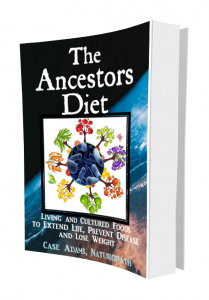Red Meat Increases Risk of Dying Earlier
Red meat is harmful for our bodies in a number of ways. This is according to the scientific research alone.
In this article
Harvard study on red meat
Research from Harvard University has found that eating red meat increases the risk of dying from a disease such as cancer or heart disease by up to 20 percent.
The research, led by Harvard professor Frank Hu, PhD, MD, followed nearly 38,000 men and almost 84,000 women between 1980 and 2008. During that period, 23,926 men and women died. The researchers followed their diets throughout the 28-year study period, updating them every four years.
Those who ate an average of one serving a day more of unprocessed red meat were 13% more likely to die. Those who ate one serving a day more of processed red meat had a 20% higher incidence of death.
Those who ate an extra serving per day of processed meat had a 21% higher risk of dying from heart disease, while those who ate a serving a day more unprocessed red meat were 18% more likely to die from heart disease.
Those who ate a serving a day more processed meat had a 16% higher risk of dying from cancer.
The researchers also found for every one serving of red meat replaced by other (non-red meat) forms of protein, the mortality risk dropped by between 7% and 19% – depending upon the type of protein.
Other research confirms meat increases mortality
This study confirms a similar study conducted in 2009 by the National Cancer Institute, which included a population study conducted by the National Institutes of Health and the American Association of Retired Persons. This study followed 500,000 people between the ages of 50 and 71 years old.
After ten years, those who ate more red meat had an increased death rate of 31% for men and 36% for women. Those who ate more red meat had an increased risk of death due to cancer by 22% and 20% among men and women respectively.
Those eating more red meat also had a 27% and 50% increased risk of dying from heart disease for men and women respectively.
Other studies have found similar results when investigating specific diseases, such as heart disease, colon cancer, kidney cancer, pancreatic cancer and others.
Of this most recent study, lead researcher Dr. Hu was surprised at the impact of eating more red meat. “The results are not really surprisingly given that previous studies have found consumption of red meat is linked to diabetes, heart disease and certain cancers. What’s surprising is the magnitude… Even a small amount of red meat is associated with a significantly increased risk of mortality,” Dr. Hu told Reuters Health.
Contrasting this, plant fats reduce the risk of heart disease according to other research.
Many ask whether we can get enough protein without eating meat. The answer is yes, absolutely. Our bodies simply were not intended to eat red meat. Learn more about the scientifically most healthy diet.:
References:
An Pan, PhD; Qi Sun, MD, ScD; Adam M. Bernstein, MD, ScD; Matthias B. Schulze, DrPH; JoAnn E. Manson, MD, DrPH; Meir J. Stampfer, MD, DrPH; Walter C. Willett, MD, DrPH; Frank B. Hu, MD, PhD. Red Meat Consumption and Mortality: Results From 2 Prospective Cohort Studies. Arch Intern Med. Published online March 12, 2012.
Sinha R, Cross AJ, Graubard BI, Leitzmann MF, Schatzkin A. Meat intake and mortality: a prospective study of over half a million people. Arch Intern Med. 2009 Mar 23;169(6):562-71.
















